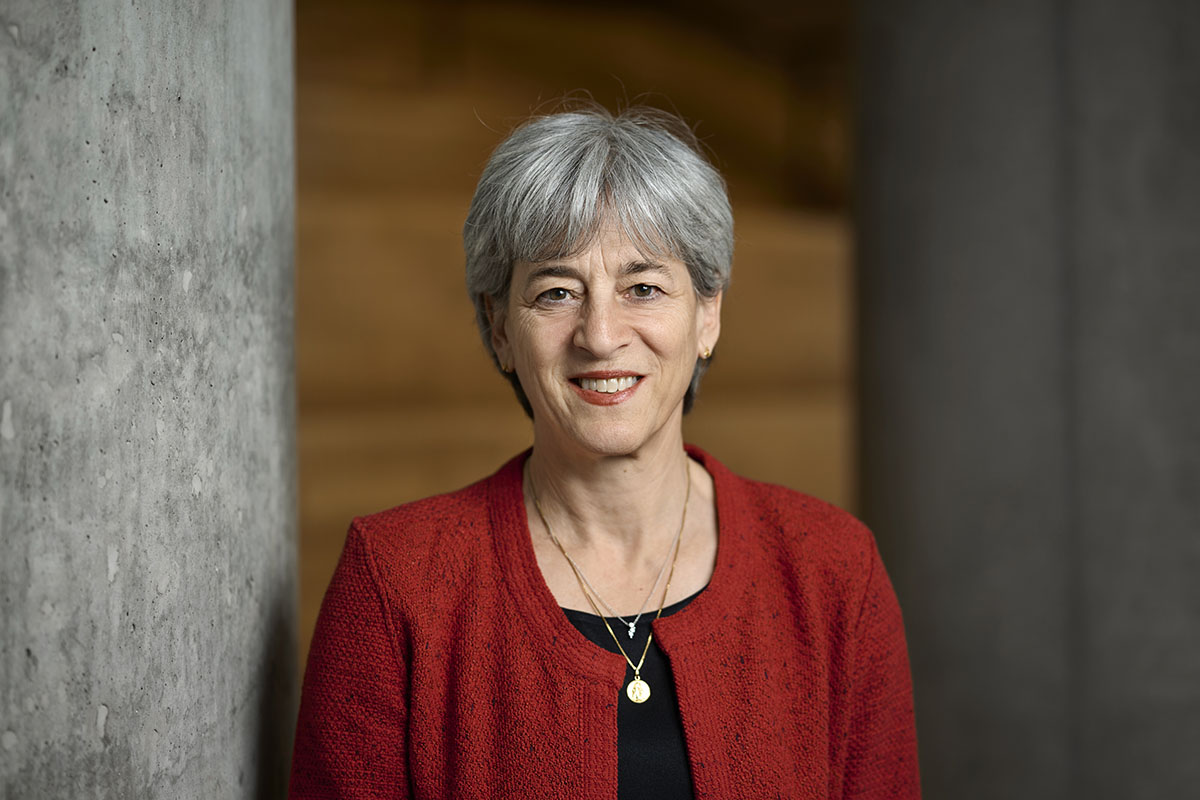Professor Juleen R. Zierath has demonstrated the profound therapeutic potential of exercise through 30 years of research. The scientist from the Karolinska Institutet in Stockholm and the University of Copenhagen is the 2024 recipient of the Diabetes Prize for Excellence, awarded by the European Association for the Study of Diabetes (EASD) and the Novo Nordisk Foundation.
Several decades ago, Zierath set out to solve some of the mysteries of exercise. How do muscles respond to exercise? How and why do the muscles of people with obesity and type 2 diabetes become insulin resistant? How do different forms of exercise alter the genetic expression of muscles? How does the timing of exercise and eating affect metabolism?
Zierath is Professor of Clinical Integrative Physiology at Karolinska Institutet and Professor and Executive Director at the Novo Nordisk Foundation Center for Basic Metabolic Research at the University of Copenhagen. Her research groups have made profound discoveries in answering these questions, with the potential to improve the lives of people living with cardiometabolic diseases.
“Professor Zierath’s groundbreaking research on the plasticity of skeletal muscle has unveiled critical insights into how muscle adapts and maladapts to exercise, and the mechanisms behind insulin resistance in obesity and type 2 diabetes,” said Chantal Mathieu, President of EASD and chair of the committee that awards the prize.
“Her work on the physiological regulation of insulin signalling pathways in skeletal muscle has significantly advanced our understanding of diabetes, making her a distinguished addition to the list of previous luminary recipients,” she adds.
The prize is awarded for outstanding research or technological contributions in the field of diabetes and is accompanied by DKK 6 million. DKK 5 million is for research purposes and the remainder is a personal award. Recipients are invited to give a lecture at the Annual Meeting of the EASD, and Zierath will do so at the 60th edition of this event, held on 9-13 September in Madrid.
“I am humbled and honoured to receive the prize,” said Zierath. “I am also grateful for the substantial funding that will help my teams approach new challenges and attempt more high-risk, high-reward research.”
Exercise as medicine
Early in her career, Zierath worked together with scientists at Washington University School of Medicine who had pioneered the idea that exercise can combat insulin resistance. While there, her studies underscored the complex interplay between diet, exercise, and insulin sensitivity, which presented the possibility of optimising glucose management through lifestyle modifications.
“This really triggered my interest in understanding how muscle cells become insulin resistant and how exercise can help them remain insulin sensitive,” she explained. “My interest in these questions has grown ever since and has only become more relevant in the context of the growing epidemic of type 2 diabetes and obesity.”
Following her postdoctoral studies at Harvard Medical School, she returned to Karolinska Institutet where she was involved in a study that identified precisely how muscle contractions improve glucose uptake and metabolism. The group found that exercise activates a protein called AS160 that in turn boosts the activity of a second protein, GLUT4, which moves glucose from the blood into muscle and fat cells.
While insulin can also trigger this process, the effect of insulin on AS160 is impaired in people with type 2 diabetes. Her discovery thereby offered hope for people with type 2 diabetes, who could improve glucose uptake in their muscles and lower blood sugar levels, simply through exercise.
In further studies, the team also demonstrated that one week of regular exercise could significantly improve glucose tolerance and metabolic health in people with type 2 diabetes.
“Exercise acts as medicine to enhance insulin sensitivity,” explained Zierath, adding that regular exercise over a longer period has even greater benefits. “With consistent training, we see a dual action – acute improvements in glucose uptake and long-term benefits by increasing GLUT4 transporters.”
From DNA to circadian clocks
Zierath later turned her attention to elite athletes to better understand how different types of exercise affect muscles. She then focused on the role of genes, specifically how changes in muscle tissue DNA relate to diabetes. A key discovery was that exercise alters DNA markers that influence genes related to mitochondria.
“This change boosts metabolism, improving glucose uptake and muscle function,” said Zierath. “Like athletes training for performance, exercise is crucial for health improvements, especially for people with diabetes.”
Most recently, Zierath’s research on exercise timing has shown that afternoon exercise lowers blood sugar, while morning exercise raises it.
“This could lead to new ways to use exercise to reset our internal clocks, improve metabolism, and enhance health for those with metabolic diseases. Circadian biology is key for better metabolic health.”
‘We don’t know everything about anything yet’
Looking ahead, Zierath is excited by the emerging possibilities for individually tailored exercise and diet plans.
“Research is now uncovering how exercise works at a molecular level, making it possible to distinguish at a personal level. To effectively treat metabolic disorders, personalised exercise and diet plans may be beneficial for enhancing metabolic health. Our future research will explore the best times for exercise and eating to maximise benefits for blood sugar control and overall metabolic fitness.”
Fundamentally, Zierath believes that new insights will come by addressing the complexity of human biology head-on and looking at interactions between different elements, rather than each one in isolation.
“To me, it’s an evolution,” she said. “We don’t know everything about anything yet, especially in circadian biology where diet, nutrients, exercise, and even temperature all play a role. The complexity of these interactions makes a complete understanding challenging but also makes scientific discovery exciting. That’s what’s so exhilarating about science.”
About EASD
The European Association for the Study of Diabetes e.V. (EASD) is a membership-based academic non-profit organisation with the mission to promote excellence in diabetes care through research, networking, and education. The EASD Annual Meeting is one of the largest diabetes conferences in the world, attracting thousands of delegates each year.
EASD is a leading player in education for healthcare professionals and actively involved in developing statements and guidelines translating the latest results from research into best practices in diabetes management. EASD is the publisher of Diabetologia, a major monthly international diabetes journal with an impact factor of 8.2 (2022).
In 2000, EASD increased its commitment to stimulate diabetes research in Europe by creating the European Foundation for the Study of Diabetes (EFSD) and since inception, EFSD has committed over €130 million to diabetes research by various funding means.
For more information, please visit: www.easd.org









